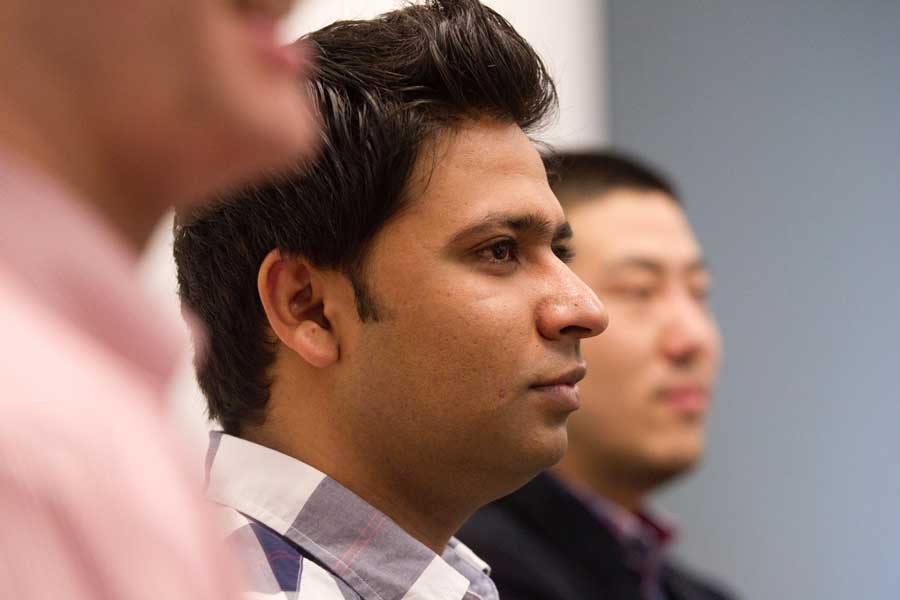Two weeks ago, Fox Management Consulting highlighted the trend of top MBA programs incorporating experiential learning into their curriculum. By integrating coursework with live client consulting engagements, universities train their students to take on business challenges. Students learn to navigate ambiguity and hone their skills in collaboration.
As this trend continues to grow, more and more universities look for ways to give their students experiential learning opportunities. With more than 18 years of experience leading MBA students through high-value consulting engagements, here are some things Fox MC has learned about creating successful experiential education programs.
1) Get the Scope Right
Client consulting engagements are a strange balancing act. Clients need to know that listening to and meeting their needs is a top priority. Students need to feel that both the curriculum and the consulting engagement are delivering a rich learning experience that contributes to their education. The best project outcomes are achieved when both sets of needs are balanced, and clients and students are committed to creating value for each other.
Offering value to both parties begins by getting the project scope right. “Our projects should contain a good amount of research and surround a decision of strategic importance for the company,” explains Dr. TL Hill, Fox MC’s managing director. “There’s a mutual sorting process that happens between Fox MC and the client to make sure we have a project that is a good fit for us.”
Getting the scope right ensures that students are engaged in a rich learning experience, and clients are getting a high-value return on their investment.

2) Monetize Engagements
Early in Fox MC’s history, Hill considered offering student consulting services for free. “We’re fairly rare in charging money for this,” he says. A supervisor was able to recognize the need for payment, and Hill is very glad they chose to go in that direction.
“When we make these paid consulting engagements, everyone takes it more seriously,” says Hill. He acknowledges that students and companies both have a lot of competing priorities. The initial investment in the project helps both sides to sustain the commitment needed to make these projects successful.
3) Provide Oversight
If there is a secret to the incredible success of Fox MC, both in the consistently high quality of their work and in creating significant value for their clients, it is the involvement of project executives in every project. Project executives, fondly referred to as “PEs” by their MBA charges, are industry experts who guarantee that students perform at the highest level.
PEs are “mostly semi-retired, very smart, with long careers,” says Hill. PEs commit to meet together before each class to discuss problem areas in their team, attend each class with their students, and offer industry experience and connections to help move the student projects forward. “We don’t take on a project,” says Hill, “If we can’t find the right project executive with the right expertise.”
To recruit and retain high quality PEs, Fox MC fosters an ongoing community of former and current project executives. “There aren’t that many opportunities to give back that are this intellectually engaging and concretely effective,” says Hill. Fox MC now completes more than 40 projects a year, so there is usually adequate variety to match everyone’s skills and expertise.

4) Believe Adults Learn by Doing
Creating course curriculum for Fox MC capstone projects is a challenge. Every project is unique, the obstacles faced by each client are different, and new obstacles emerge at every stage of the project. This makes teaching the courses that accompany Fox MC consulting engagements fairly complex.
One thing that grounds the curriculum is a firm belief in the philosophy of experiential learning. “We’ve known for years that adults learn better by doing,” says Hill. “In some ways, MBA curriculum is finally beginning to catch up.” Because faculty and PEs understand that the challenges are an inherent and important part of the student learning experience, they’re able to walk students through the process without getting tripped up by the inherent ambiguity of live projects.
Any MBA program hoping to integrate live consulting engagements into their curriculum should be firmly rooted in the belief that these experiences offer a uniquely valuable learning opportunity for students.
5) Pick Client Partners With Care
Client partners are an important part of making Fox MC projects successful. Fox MC has completed multiple high-value projects over their five year relationship with Aquiline Capital Partners, a New York-based private equity firm. We will examine that relationship as a case study for creating successful partnerships in experiential education in our next installment of this article series.

